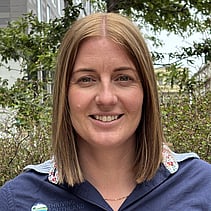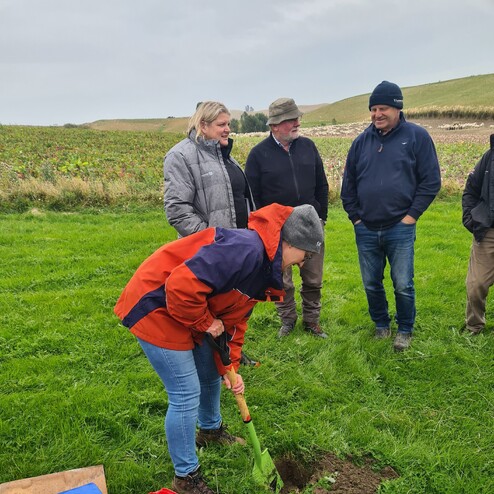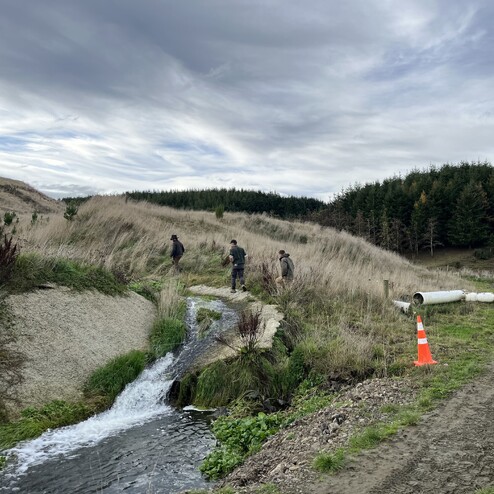Your Catchment Group Coordinator
Katie Alderton
021 399 343
katie@thrivingsouthland.co.nz
Catchment Group Contacts
Robert Young
027 294 9882
rsyoung@yrless.nz
Chris Affleck
027 371 7740
afflecks@yrless.nz
About Us
The Waikaka Catchment Group was formed in 2017 by locals who wanted to take action to protect the Waikaka and Pukerau streams. These waterways are a big part of the community and run through farms, townships, and are places families to swim and fish. The group’s made up of a great mix of sheep, beef, dairy, and cropping farmers, along with locals from Waikaka and Pukerau. It’s been inspiring to see how they’ve pulled together to share ideas, learn from each other, and take real ownership of their environment.
Catchment Area
The group’s focus is on the Waikaka and Pukerau catchments in Eastern Southland, which includes the Waikaka Stream and its surrounding farmlands and townships.
Recent Events
The Waikaka Catchment Group hosted a Wetland Field Day at Byars Road, Waikaka, showcasing how wetlands can improve water quality, trap sediment, and enhance biodiversity. Farmers heard from experts at Environment Southland, Otago South River Care, and Pomahaka Water Care about practical solutions, consent processes, and sediment trap design.
Another highlight was the Unconventional Farming Field Day at David and Jane Pullar’s farm in Pukerau. The session focused on innovative land-use strategies, such as using summer crops to reduce soil damage, building resilience, and exploring erosion control methods.
Projects
Erosion Mitigation Mapping
Erosion and sediment loss have been key priorities for the group. Working with Land and Water Science, they developed detailed digital maps showing where the main problem areas are across the catchment. These maps have given farmers clear, practical information to guide action on their own farms. From there, small focus groups have formed to share ideas and plan collective action.
Other Projects:
A hands-on mapping workshop was held with Clint from Land & Water Science, helping group leaders get comfortable using the tools and data on their own farms. It’s been great to see that knowledge now being shared across the community.





